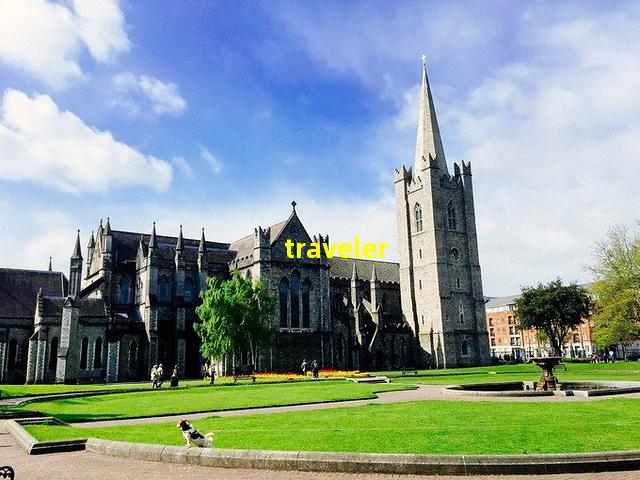私人旅游英语怎么说(一个人的旅行英语怎么说)
1、私人旅游英语怎么说
私人旅游英语怎么说
当我们进行私人旅游时,有时候需要与当地人交流,使用英语进行沟通是很方便的。下面是一些常用的私人旅游英语表达,帮助你顺利度过旅程:
1. "Excuse me, where is the nearest ATM?"(打扰一下,最近的取款机在哪里?)- 当你需要找到最近的取款机时,这句话非常有用。在旅行过程中,我们通常需要取现金或者办理一些银行业务。
2. "Could you recommend a good local restaurant?"(你能推荐个好的本地餐厅吗?)- 如果你想尝试当地美食,向当地人咨询他们推荐的餐厅是最好的方式。他们可以向你介绍当地的特色菜肴。
3. "How much does this souvenir cost?"(这个纪念品的价格是多少?)- 在购买纪念品时,了解价格是必要的。这句话可以帮助你与售货员进行交流。
4. "Can you tell me how to get to the nearest bus station?"(你可以告诉我怎样去最近的公交车站吗?)- 如果你需要乘坐公交车去不同的景点,这句话会帮助你找到正确的路线。
5. "Do you have any tour guides who speak English?"(你们有会说英语的导游吗?)- 如果你需要一个会说英语的导游,这句话很有用。导游可以带你了解当地的历史和文化。
无论你是通过旅行社预订的旅行还是自助旅行,以上这些私人旅游英语表达都会让你的旅途更加顺利和愉快。

在旅游的过程中,与当地人沟通是非常重要的。用英语交流可以让你更好地了解当地人的生活和文化,同时也能解决一些旅行中的问题。所以,不要害羞,勇敢地使用英语向当地人提问,你会发现这些简单的表达能够带给你难忘的旅行体验。
2、一个人的旅行英语怎么说
Traveling Alone: A Journey of Self-Discovery
Traveling alone can be a truly empowering and transformative experience. It offers an opportunity to step out of one's comfort zone, embrace new cultures, and embark on a journey of self-discovery. Here are a few reasons why traveling solo can be a remarkable adventure:

1. Freedom and Flexibility
Traveling alone grants you the freedom to go wherever you please, whenever you want. You have complete control over your itinerary and can make impulsive decisions along the way. Whether it's exploring hidden gems, spending an extra day in a picturesque town, or changing your plans entirely, the choice is yours.
2. Personal Growth
Stepping out of your comfort zone and navigating unfamiliar territories alone can greatly contribute to personal growth. Traveling solo pushes you to rely on yourself, to make decisions independently, and to adapt to new and unexpected situations. It builds resilience, self-confidence, and broadens your perspective on the world.
3. Self-Reflection
Traveling alone provides ample time for self-reflection. Away from the noise and distractions of daily life, you can truly connect with your inner self. Sitting atop a mountain, strolling along a secluded beach, or savoring a cup of coffee at a local café, you can contemplate your dreams, goals, and aspirations. It gives you the space to discover who you truly are.
4. Meeting New People
Traveling alone opens doors for meaningful interactions with people from diverse cultures. Without the comfort of a familiar companion, you are more likely to engage with locals, fellow travelers, and make new friends along the way. These connections can lead to unforgettable experiences, shared adventures, and lifelong friendships.
In conclusion, traveling alone is not only about exploring new destinations, but also about embarking on a journey of self-discovery. It allows you to unleash your adventurous spirit, challenge your limits, and create lasting memories. So, if you have the opportunity, pack your bags, venture into the unknown, and let solo travel be your guide to a world of self-exploration and personal growth.
3、旅游者 用英语怎么说
Traveler
As a seasoned traveler, I have had the privilege of exploring various corners of the world, immersing myself in different cultures, and creating unforgettable memories along the way. Being able to communicate effectively in English has been instrumental in my journeys, allowing me to connect with people from all walks of life. So, how do we say "traveler" in English?
The term "traveler" encompasses the idea of someone who embarks on a journey to discover new places, experience different cultures, and broaden their horizons. In English, we use the word "traveler" to refer to individuals who engage in these activities. It is a generic and commonly used term that reflects the passion for exploration and adventure.

Travelers often have a wanderlust, fueled by a desire to explore the unknown. They seek out new experiences, whether it's savoring local cuisine, visiting historical landmarks, or enjoying the beauty of nature. The English language provides a universal platform for travelers to communicate, connect, and share their experiences with others.
When traveling abroad, being able to speak English opens up opportunities for interaction and immersion. It enables travelers to navigate through unfamiliar territory, ask for directions, seek recommendations, and engage in meaningful conversations with locals. English becomes a bridge that connects people from different cultures, fostering understanding, and creating lasting memories.
Whether you are a solo traveler, a group of friends, or a family on vacation, being a traveler allows you to step out of your comfort zone and embrace the unknown. It encourages self-discovery, personal growth, and a deeper understanding of the world around us. Being a traveler is more than just visiting new places; it is about embracing the journey, the experiences, and the connections made along the way.
So, if you have a thirst for adventure, a passion for exploration, and a love for discovering new cultures, let English be your companion in your travel experiences. Embrace the title of "traveler" and embark on the journey of a lifetime.
4、因私旅游的英文翻译
Private Tourism

Private tourism, also known as individual tourism or personal tourism, refers to traveling for personal reasons or interests. It has become increasingly popular in recent years, as more and more people seek unique travel experiences tailored to their own preferences.
Unlike organized group tours, private tourism allows individuals to plan their itineraries and choose destinations according to their own preferences. This type of travel offers greater flexibility, as people can explore at their own pace and spend more time in places that interest them the most. It provides a sense of freedom and independence, allowing travelers to fully immerse themselves in the local culture and create unforgettable memories.
One of the advantages of private tourism is the opportunity to have a more personalized experience. It allows individuals to connect with locals and gain deeper insights into the destination. Whether it's interacting with local artisans, learning about traditional customs, or trying authentic cuisine, private tourism provides ample opportunities for cultural exchange and authentic experiences.
Another benefit of private tourism is the ability to avoid crowded tourist spots. Often, organized group tours follow set itineraries that may include popular attractions and landmarks. However, these places are often crowded, especially during peak travel seasons. Private tourism allows individuals to explore off-the-beaten-path locations and discover hidden gems that may not be well-known to the masses.
Moreover, private tourism promotes sustainability and responsible travel. By supporting local businesses, staying in small boutique hotels, or opting for homestays, travelers can contribute to the local economy and help preserve the natural and cultural heritage of the destination. This type of travel allows individuals to have a positive impact on the communities they visit and ensures a more authentic and ethical travel experience.
In conclusion, private tourism offers a unique and personalized way of exploring the world. It allows individuals to customize their itineraries, connect with locals, avoid crowds, and contribute to sustainable travel. Whether it's a solo adventure or a trip with friends and family, private tourism provides the freedom and flexibility that many travelers seek. So, pack your bags and embark on a journey of self-discovery and exploration through private tourism.

.jpg)
.jpg)
.jpg)
.jpg)
.jpg)
.jpg)